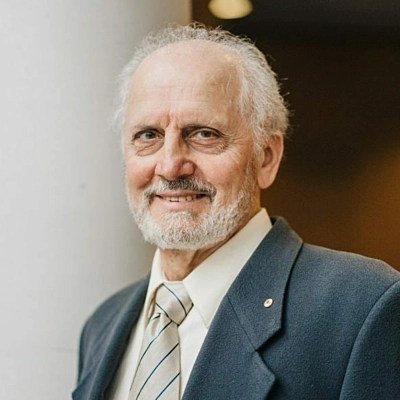
Speaking on the latest episode of the Ouzo Talk Podcast, Paxinos, known globally as the first man to map the human brain, believes that contact sports should go the way of the gladiators in the interests of brain health – the scientist and lecturer stressing that while contact sports make for a great spectacle, avoiding head-knocks is crucial to maintaining brain function, and preventing the on-set of dementia for players and participants.
“I think they should be numbered,” says Paxinos of the future of contact sports.
“The thing is, if you lose your leg in a sport, that would be bad, but you’re still (you). But to have a brain impairment, you’re not the same person. And it’s not that you’re just a different person or a nicer person – you are in difficulty in maintaining relations, in keeping your job, in a number of things and you need assistance. It’s unfair on the players.
“There’s a lot of financial interests and a lot of fun that people have and they (spectators) don’t mind seeing the gladiators kill each other.”
Paxinos’ calls come hot on the heels of a torrid opening round of the 2023 NRL season, where a total of 14 players were taken from the field under the game’s HIA (Head Injury Assessment) guidelines, designed to protect player welfare.
But the problem isn’t ‘management’ of head injuries according to Paxinos – who is currently Senior Principal Research Scientist at Sydney-based NeuRA – it’s avoidance altogether.
The order of Australia recipient is quick to stress that sport and physical exercise can play an important role in maintaining brain-function, so long as contact with the head is not a feature of the sport.
“Neuroscientists – to make a disclaimer – have not cured any disease, but they’re not altogether useless in that they have identified factors which can enhance, or at least prevent, the decline of cognition. One of them is physical exercise,” says Paxinos.
“Walking, running, swimming, rowing, cycling, and of course some team sports which have a benefit also – provided you don’t hit your head. Just don’t hit your head! It is not a good idea.
“These (team) sports, provide also some social interaction which is another thing that is related to the delay of dementia. That is, if you have friends, it is as good as exercise – the fact that you feel pleasant with your friends.
“If you play a team sport, you have that additional benefit of interacting with someone. That helps.”
The Ouzo Talk podcast is available on all major podcast streaming apps, including Apple Podcasts, Spotify, Google Podcasts, SOUNDIS.GR and more. Subscribe on your favourite platform so you never miss an episode.
Read also Michel: Nobody’s learning anything meaningful from British Museum’s Parthenon Marbles display